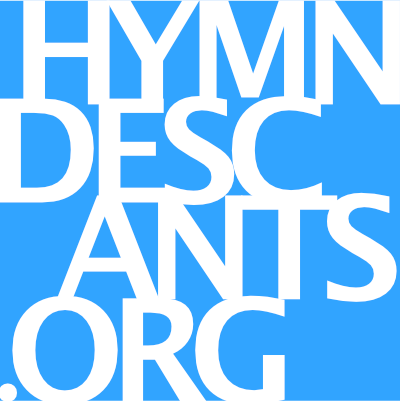Descant to the hymn tune MOSCOW. Free score with harmonized descant for three hymns with separate choir part.Free score.
1 unsion
Thou, whose almighty word
chaos and darkness heard,
and took their flight;
hear us, we humbly pray,
and, where the Gospel day
sheds not its glorious ray,
let there be light!
3. satb (study)
Spirit of truth and love,
lifegiving holy Dove,
speed forth thy flight!
Move on the waters' face
bearing the gifts of grace,
and, in earth's darkest place,
let there be light!
4 descant
Holy and blessed Three,
glorious Trinity,
wisdom, love, might;
boundless as ocean's tide,
rolling in fullest pride,
through the world far and wide,
let there be light!
MOSCOW is one name (among many) given to a hymn tune by the 18th C. Italian violinist Felice de Giardini and published as an alternative to "An Hymn to the Trinity," Come thou almighty king, a text that appears to be a parody of God save our gracious king. The tune made its first appearance in 1769, and is more frequently published as ITALIAN HYMN, occasionally as TRINITY, and sometimes by additional names. Three very popular hymns are sung to it: Come thou almighty king, Thou whose almighty word, and Christ for the world we sing. There are variants among the variants, and though the broad outlines of the tune are consistent, small but important details differ. The arrangement here is based on a version of MOSCOW that appeared Hymnal 1916 (also published in Hymnal 1940 and Hymnal 1982), merged from the version in Hymns Ancient and Modern (1871) and an earlier harmonization by Lowell Mason (1822). This is an almost exclusively Anglican variant.
The hymn Thou whose almighty word was composed in 1813 by John Marriott, at whiles rector or curate in parishes in the south of England. It is a splendid text that may be his only surviving piece of poetry. Christ for the world we sing was authored by minister and missionary Samuel Wolcott in 1869, following a conference of an Ohio chapter of the YMCA in his church; the refrain derives from a slogan used on a banner at that conference. The text Come thou almighty king is sometimes attributed to Charles Wesley, but there is no extant record linking the text to the prolific writer (and parodist) Wesley, thus it is officially (and probably) anonymous.
Several full-score comparison hymnal page scans can be found on The Hymnary website (scroll to the bottom). The Hymnal 1982 Companion cites additional names for this tune: BENTINCK, FAIRFORD, FLORENCE, GIARDINI'S and HERMAN.
Updated: November 2018
Thou whose almighty Word
Come thou almighty King
Christ for the world we sing
– John Marriott, 1813

